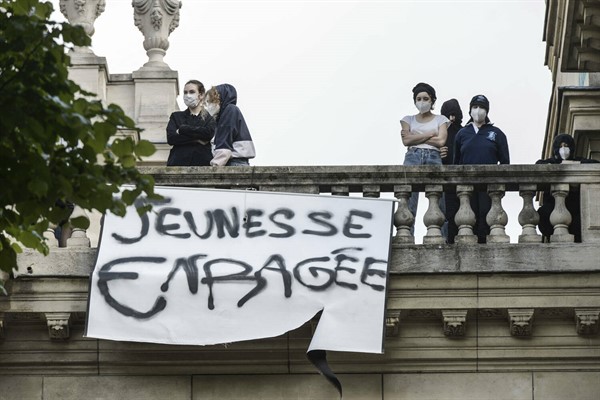Three days after the first round of the French presidential elections in April, students occupied the Sorbonne University building in Paris. Their banners and posters displayed a recurrent slogan: “Neither Macron nor Le Pen,” referring to center-right President Emmanuel Macron and far-right leader Marine Le Pen, who passed through to the second-round vote in a rematch of their 2017 contest.
As police cleared the building after 30 hours of occupation, both presidential candidates vehemently criticized the demonstration. But the protests quickly spread, with students across France expressing their dissatisfaction at having to once again choose between candidates from the center-right and the far right, when they and other voters younger than 34-years-old had overwhelmingly opted for Jean-Luc Melenchon, the candidate of the leftist party France Unbowed, in first-round voting.
For their part, many critics of the occupation of the Sorbonne considered the students’ position as hypocritical, pointing to the abstention rate in the first-round election among young voters—46 percent among the 25-34 age group and 42 percent among the 18-24 bracket—as a sign of their political apathy. How can young people complain about the election’s outcome, this argument goes, when they didn’t even vote?

